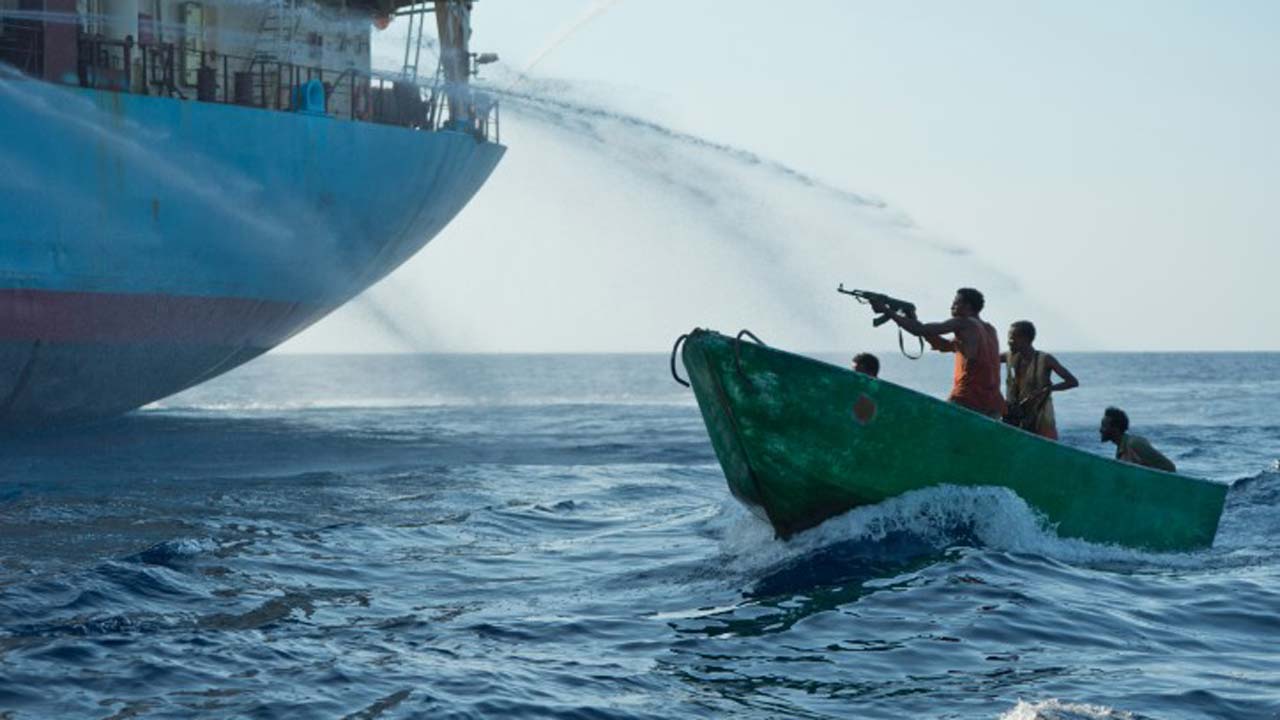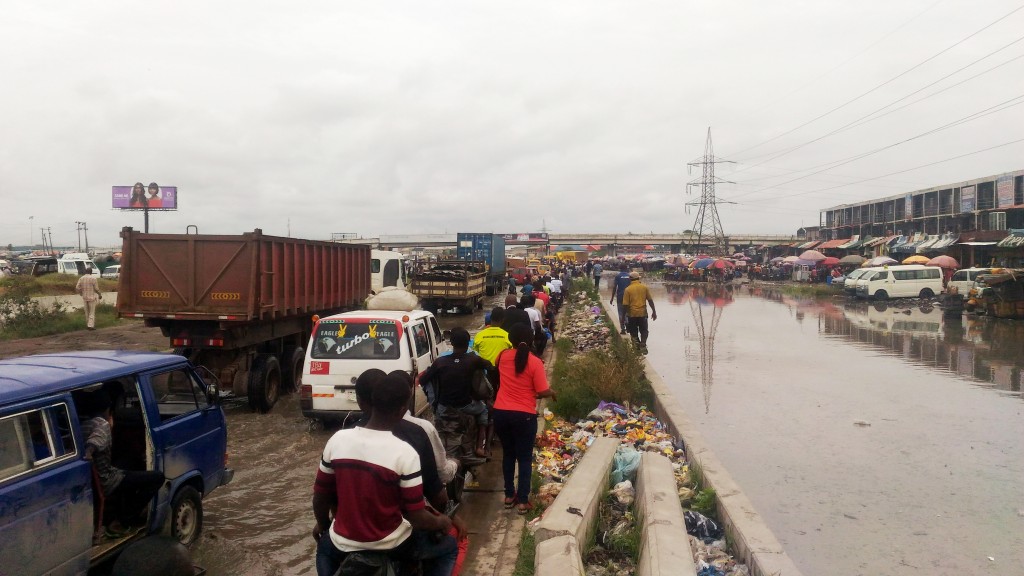The recent blatant denial of the report that Gulf of Guinea remains the axis with the highest pirate attacks within navigable waters across the world after Gulf of Eden by the Director General of Nigerian Maritime and Safety Administration (NIMASA), Mr. Dakuku Peterside has been rejected by industry experts.
The International Maritime Bureau’s (IMB) Piracy Reporting Center has once again identified Nigerian waters as being extremely dangerous.
It would be recalled that Togolese President was in Abuja recently to confer with his Nigerian counterpart on how to tackle the rising embarrassment posed by rising wave of pirate attacks on the stretch, saying maritime nations on the Gulf of Guinea which Nigeria is a leader, have been losing not less than $7bn yearly to pirate attacks.
According to figures available for the first three months of 2018, Nigeria alone recorded 22 incidents since the beginning of January. Of the 11 vessels fired upon worldwide, eight were off Nigeria — including a tanker more than 40 nautical miles off Brass, in Bayelsa state in the Niger Delta, with a capacity of 300,000 metric tons. In 2017, the IMB reported over 20 attacks on vessels in the same area.
Security analyst and head of the Beacon Consulting security risk management company in Nigeria, Kabeer Adamu, says monitoring by the IBM plays a major role in assessing the threat posed by piracy.
“If we do not get such organizations to speak out about such things, then unfortunately they go under the radar and they become bigger problems,” Adamu told DW.
NIMASA’s denial is coming as a 12-year old 7,000 ton tanker, the Pantelena which sailed into the Gulf of Guinea has ‘disappeared’ with its 17 Georgian crew on-board, since August 14, heightening the fears that the dreaded zone is still unsafe, despite the several assurances from the authorities that piracy has been significantly minimized, in the area.
Some of the industry stakeholders who responded to Business Hilights inquiries averred that NIMASA’s response was without any credible fact and figures as the Gulf of Guinea remains the area with the highest record of both pirate attacks and kidnapping in the last two years.
They recalled that many international ships approaching Nigeria in the last few years have been armed with special anti-pirate private security who are paid in hard currencies till date.
Observers queried NIMASA to come with the reasons behind the shrouded hiring of Israeli security firm to man the territorial waters if it was not because of pirate attacks millions of naira foreign shippers spend on private security that usually escort them in and out of Nigerian waters.
It would be recalled that in June last year, the leadership of NIMASA announced the setting of a target of June 2018, to achieve zero per cent piracy in the nation’s maritime domain, but steady attacks have revealed lack of consistency in policy direction.
The Dr Peterside had told journalists shortly after receiving the TELL award of excellence for the Public Organisation of the Year 2016 in Lagos, that the agency has been battling with the challenges of piracy and sea robbery within the nation’s waters.
He said “Recall, we have for some time been battling with the challenge of piracy and sea robbery within our maritime domain; from June next year, we will move from the level we are now to zero per cent non- piracy on our waterways. We are working hard every single day to ensure there is no piracy and sea robbery on our waters. That is first commitment we are making to Nigerians”.
Still on the latest attack on MV Pantelena, details suggest that while it could not yet be determined whether the disappearance was as a result of piracy attack, or sequel to a malfunction of the locator beacon, a satellite tracking device, it is however incisive that the disappearance occurred off the coast of Gabon and the Sao Tome and Principe archipelago; though within the Gulf of Guinea, but significantly far from Nigerian waters. Gabon lies on the southern a part of the Gulf of Guinea – the nice bend within the shoreline of West Africa – the place pirates are a significant downside for transport.
A web sites listing the 121-metre (396-feet) ship, mentioned it as dual-purpose oil or chemical tanker, and a Panamanian-flagged, owned by a Greek firm, Lotus Transport Co. Ltd.
Confirming this in a press release issued recently, Georgia’s overseas ministry in Tbilisi indicated there have been issues for 17 Georgian sailors on-board and a search operation was being carried out with the assistance of the British maritime authorities.
The owners highlighted that the Pantelena “turned off its locator beacon,” noting that it is usually “the very first thing that pirates do after they board a ship is to chop off this beacon”; even as they noted that it was still too early, to speak about an act of piracy as a result of, since “it may very well be a easy transmission breakdown,” the supply added.
A crew member aboard a ship cruising between Gabon’s capital Libreville and Port-Gentil, the nation’s financial hub, mentioned: “We obtained a misery message over the radio and we alerted the Gabonese navy.”
A Gabonese navy official confirmed that it had “obtained an alert … concerning the Pantelena, however we didn’t have sufficient info to intervene.”
In Sao Tome and Principe, which is situated about 260 kilometres from Gabon, the commander of the native coastguard, Joao Idalecio, mentioned it had dispatched a patrol vessel with a crew of 30 to seek for the tanker.
Industry analysts have been making it clear that maritime safety is a significant concern within the Gulf of Guinea, with greater than 5,700 kilometres of shoreline and 17 international locations from Senegal to Angola, because it has change into an epicentre of piracy since 2016 after the pirate menace diminished off the coast of Somalia.
Business Hilights recalls that in February, the MT Marine Categorical, a Panama-registered tanker with 13,500 tonnes of gas, was seized with its crew because it was anchored off Benin. The ship and crew had been freed a number of days later.
Final month, the International Maritime Bureau (IMB) mentioned that its specialist piracy reporting centre had recorded 107 incidents worldwide within the first six months of 2018.
“All 25 crew kidnappings reported this 12 months have occurred over six incidents within the Gulf of Guinea, highlighting the upper dangers on this space,” the IMB mentioned.
The pirates’ mode of operation has additionally developed from so-called “bunkering” – theft of fabric on the boat – “to a rise within the taking of hostages for ransom”, a Gabonese patrol commander Gael Mbanda mentioned in February.









